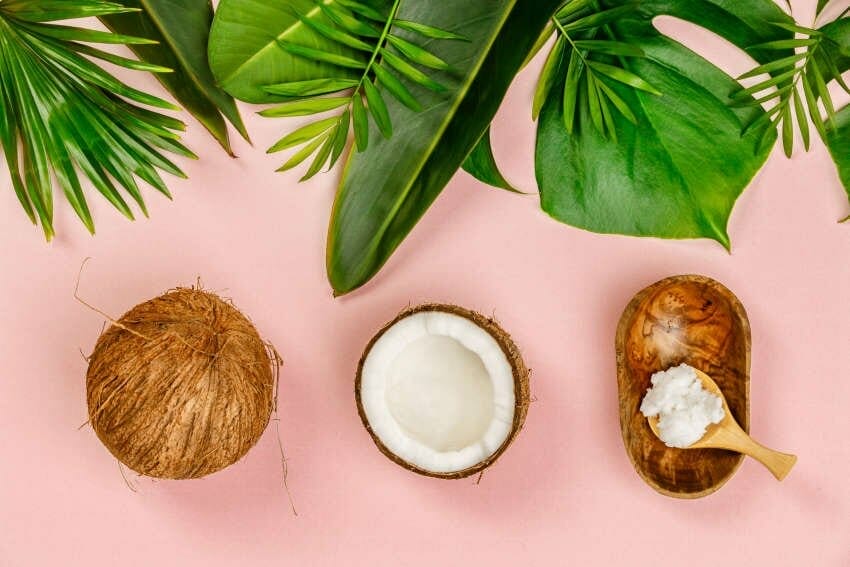
My name is Kyle Hornby and I am a Dentist in Kitchener, Ontario. Each week, I tackle subjects and answer FAQs to help raise the bar on dental health information available to the general public. Today, I'm going to discuss the natural practice of "oil pulling" and its efficacy in improving oral health.
Oil pulling has become more popular in recent years as people increase their focus on natural approaches to health care. Research supports some of these practices but not others. As such, patients often ask me about oil pulling and what it can do for them. Today, we'll chat about oil pulling and if it is, indeed, a good thing for oral health.
Oil pulling is a practice associated with ancient Ayurvedic medicine. Ayurveda is a health system that people in India have followed for over 5,000 years. Many Ayurvedic techniques, including oil pulling, have now caught on around the world.
Oil pulling involves swishing oil (such as coconut, sesame, or safflower) around your mouth for several minutes. While you can oil pull with any edible oil, some oils have greater health benefits than do others.
Coconut oil.
The reason is that it boasts tremendous anti-inflammatory, anti-microbial and anti-oxidant activity. Pulling with Coconut Oil can reduce the concentration of harmful bacteria in your mouth to help treat Gingivitis and Gum Disease. The Lauric Acid in Coconut Oil may also help to reduce plaque buildup on teeth.
If you're going to oil pull, you'll want to follow the steps below:
Your mouth is home to a community of thousands of different kinds of bacteria. Like any community, some members contribute to the community in a way that has positive effects (think volunteering, etc.,). Some members (typically very few) can do things that have a negative effect on the community (i.e. petty theft or vandalism).
Your mouth is no different in the sense that it's home to both good and bad forms of bacteria. This collection of bacteria is called the Oral Microbiome. The good bacteria can have positive effects toward gum health while the bad bacteria can contribute to the formation of cavities or developing gum disease.
Oil pulling with the right oils, can shift the balance of your oral microbiome in favour of good bacteria that have an overall positive effect. It can, for instance, can reduce inflammation which is one of the main triggers for gum disease.
So, what other positive effects does this practice have?
Oil pulling with Coconut Oil can help to fight tooth decay. This is because Coconut Oil contains Lauric Acid, a triglyceride that is effective at destroying S. Mutans, a type of bacteria that cause cavities. By controlling S. Mutans levels in the mouth, coconut oil can help to prevent tooth decay.
Studies showing this cavity fighting effect could only demonstrate a decrease in S. Mutans level after a few weeks. This underscores the importance of using oil pulling as a long-term oral health adjunct and not a temporary solution.
It is important to note that Coconut oil pulling will not heal cavities that already exist.
Yes. Coconut oil pulling can disrupt the bacteria that cause bad breath. If you oil pull regularly, you will keep these bacteria (that camp out predominantly on your tongue) at a minimum and find that your breath is more pleasant overall.
When you swish oils around the mouth vigorously, you can create changes in pressure that may dislodge tartar from in between your teeth. But, don't count on this happening to any significant degree. When you have a professional dental cleaning, your Dental Hygienist uses a metal sickle and moderate force to remove tartar deposits from your teeth. It can be hard work.
So, while oil pulling may dislodge the occasional piece of tartar, it's not likely to be a regular occurrence.
Oil pulling won't whiten your teeth in the same way a peroxide whitening gel or toothpaste would. It's possible that pulling can reduce buildup of stain but, strictly speaking, it won't make your enamel whiter.
Oil pulling twice a week can have positive oral health effects. If you suffer from inflammatory conditions like gingivitis or periodontitis (gum disease), you can oil pull daily until you achieve stability.
Let your Kitchener Dentist know if you are oil pulling. This way, they can provide recommendations as to how often you should be doing it. They can also give you feedback about improvements in oral health which may allow for less frequent oil pulling.
If you use a high quality, cold-pressed, organic coconut oil for oil pulling, it can be a very safe procedure. This practice, of course, has the benefit of involving the use of a completely natural food oil.
If you're thinking of starting an oil pulling routine, you should consider the following risks:
Pulling with high-quality organic oils is not bad for you. As outlined above, make sure to choose an oil to which you are not allergic and remember not to ingest the oil after pulling.
By Dr. Kyle Hornby, Kitchener Dentist
Our Kitchener Dental Office is conveniently located in Downtown Kitchener. We are a short drive away for families in Waterloo, Breslau & St. Jacobs. Our central location means we truly offer family dentistry near you!
This article is not intended to be a substitute for professional advice, diagnosis, or treatment. Accordingly, always seek the advice of your Dentist or other healthcare providers regarding a dental condition or treatment.
